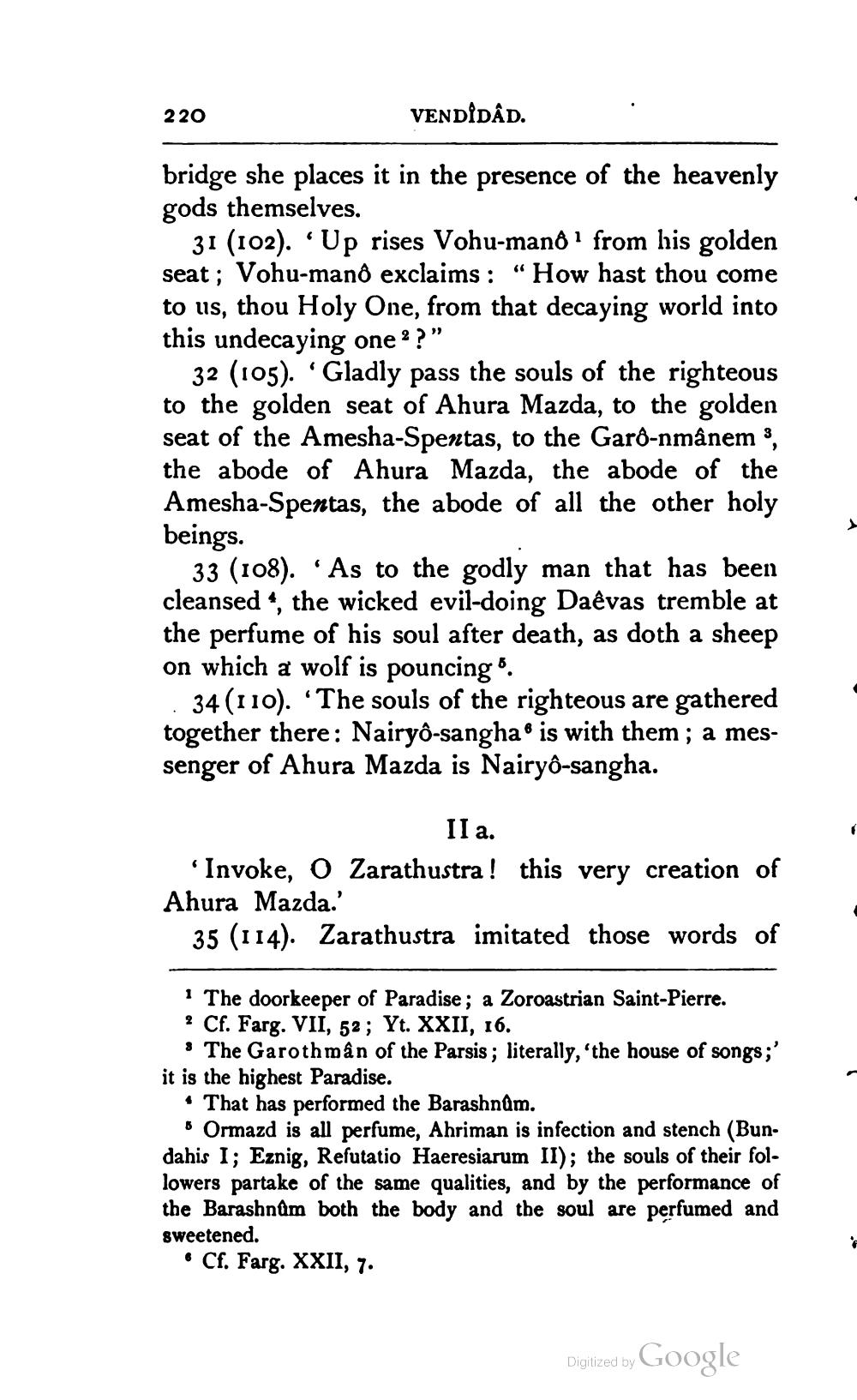________________
220
VENDÎDÂD.
bridge she places it in the presence of the heavenly gods themselves.
66
31 (102). Up rises Vohu-manô1 from his golden seat; Vohu-manô exclaims: How hast thou come to us, thou Holy One, from that decaying world into this undecaying one??"
32 (105). 'Gladly pass the souls of the righteous to the golden seat of Ahura Mazda, to the golden seat of the Amesha-Spentas, to the Garô-nmânem 3, the abode of Ahura Mazda, the abode of the Amesha-Spentas, the abode of all the other holy beings.
"
33 (108). As to the godly man that has been cleansed, the wicked evil-doing Daêvas tremble at the perfume of his soul after death, as doth a sheep on which a wolf is pouncing".
34 (110). 'The souls of the righteous are gathered together there: Nairyô-sangha is with them; a messenger of Ahura Mazda is Nairyô-sangha.
II a.
'Invoke, O Zarathustra !
Ahura Mazda.'
35 (114). Zarathustra imitated those words of
this very creation of
1 The doorkeeper of Paradise; a Zoroastrian Saint-Pierre. 2 Cf. Farg. VII, 52; Yt. XXII, 16.
The Garothmân of the Parsis; literally, 'the house of songs;' it is the highest Paradise.
• That has performed the Barashnûm.
5 Ormazd is all perfume, Ahriman is infection and stench (Bundahis I; Eznig, Refutatio Haeresiarum II); the souls of their followers partake of the same qualities, and by the performance of the Barashnûm both the body and the soul are perfumed and sweetened.
Cf. Farg. XXII, 7.
Digitized by
Google
*




